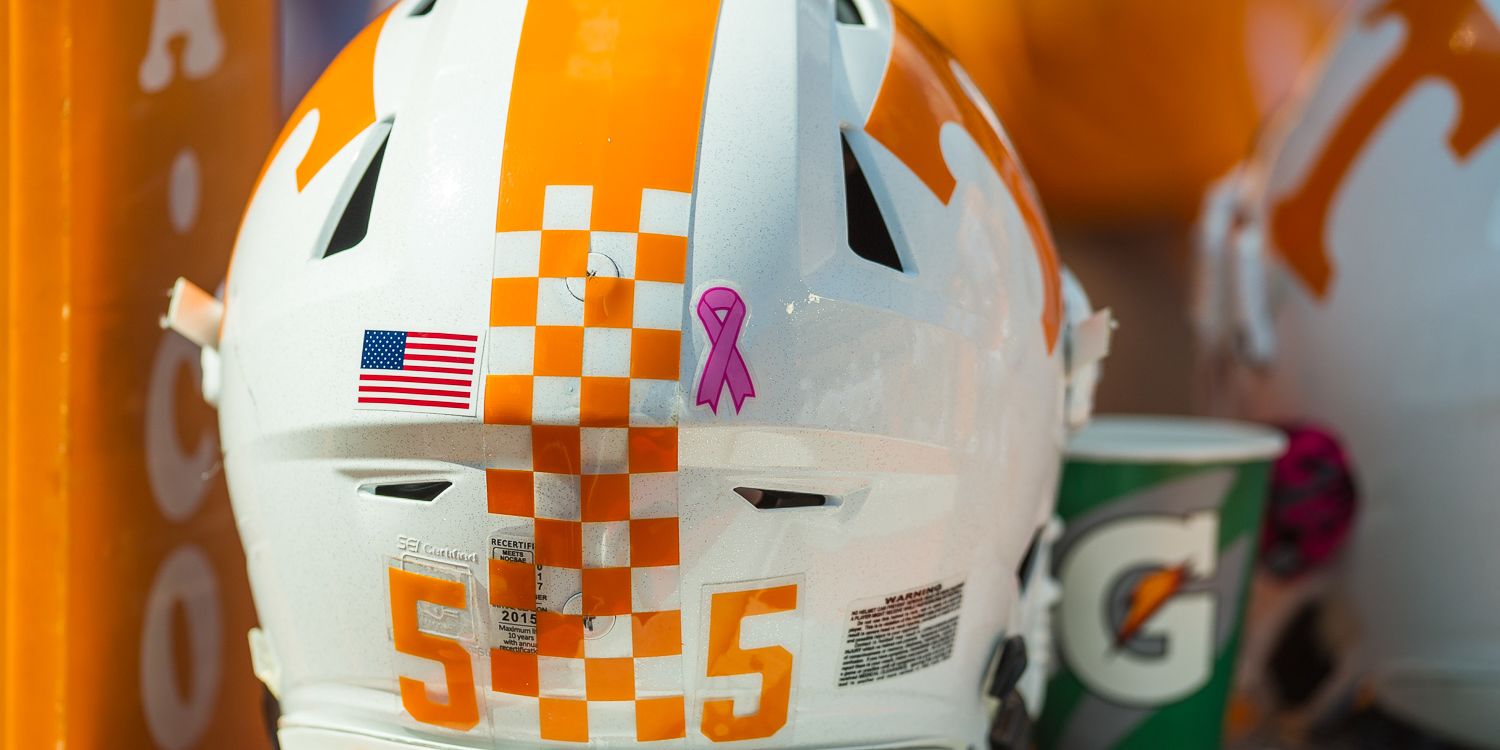Now that Jeremy Pruitt has arrived on Rocky Top full-time, his first order of business — after learning everyone’s names — is shoring up his first recruiting class. National Signing Day is Wednesday, February 7, so he has about four full weeks to put the finishing touches on a class that already has 14 signees thanks to the early signing period this year. The class currently ranks 16th in the nation, 5th in the SEC, and 2nd in the SEC East, and there is plenty of time and room to move up.
What, exactly, is Pruitt looking for? Apart from getting quality guys, it’s all a guessing game at this point. He’s said that character matters, and he’s said that he has certain criteria in mind for each position, but beyond that, he’s not really tipping his hand.
The kind of player Pruitt most desires depends of course on the schemes he plans to run, so let’s first make some educated guesses as to what Pruitt’s offensive and defensive schemes might look like. It’s important to note that Pruitt will likely adapt any scheme to the players he has on the roster, so while he will certainly be recruiting toward his ideal, what we see from his team in Year 1 may well be different by Year 4.
Defensive Scheme
It’s not a stretch to expect Pruitt to utilize the defensive scheme that has worked so well for him as defensive coordinator at Alabama, Georgia, and Florida State since 2013. This article from Florida State blog Tomahawk Nation notes that FSU moved almost immediately to a 3-4 defense when Pruitt was hired in 2013 despite initially saying that they probably would have to wait for a recruiting class or two. Assuming something similar happens here at UT this year, Pruitt may go ahead and rip off the bandaid and make the move to his preferred 3-4 even if he doesn’t yet have the ideal personnel to do it.
What personnel does he need? This excellent article from SB Nation suggests that the ideal defensive roster in a 3-4 scheme should look something like this:
- 3-6 nose tackles;
- 6-10 defensive ends;
- 5-8 inside linebackers;
- 5-8 outside linebackers;
- 4-8 safeties; and
- 5-10 cornerbacks
Here are the suggested ranges for size and speed for each position:
| Position | Height | Weight | Speed |
| Nose Tackle | 5'11"-6'5" | 290-340 | Not slow |
| Defensive End | 6'2"-6'6" | 270-310 | Quick |
| Inside Linebacker | 6'0"-6'3" | 230-250 | 4.6-4.8 |
| Outside Linebacker | 6'1"-6'5" | 220-260 | 4.6-4.8 |
| Safety | 5'10"-6'2" | 190-220 | 4.4-4.6 |
| Cornerback | 5'8"-6'2" | 170-200 | 4.3-4.6 |
That information is for a two-gap 3-4 scheme, and it appears that Pruit may run a newer one-gap 3-4 variation, so Pruitt may well be looking for different numbers, sizes, or speeds.
Offensive Scheme
What offensive style Pruitt’s team runs is more of a mystery. Offensive coordinator Tyson Helton was most recently the quarterbacks coach and passing game coordinator for USC. Prior to that, Helton was the offensive coordinator and quarterbacks coach for Western Kentucky under Jeff Brohm, who’s been heavily influenced by Bobby Petrino. This style of offense may best be described as a modern-era pro-style and is characterized as a balanced, up-tempo, explosive offense that features mutiple options and layers of misdirection that stress the attention of the defense before exploiting its weaknesses.
The SB Nation article on ideal rosters for popular schemes includes two spread schemes and a traditional pro-style, so it doesn’t specifically address what we might see on the field starting this fall, but here is the suggested ideal roster for the traditional pro-style scheme:
- 4-6 running backs;
- 3-4 quarterbacks;
- 3-6 tight ends;
- 8-13 wide receivers; and
- 14-18 offensive linemen
If I had to guess, I’d say Helton’s system would be on the high end for tight ends and wide receivers.
Here are the suggested ranges for size and speed for the offensive positions:
| Position | Height | Weight | Skillset |
| Running backs | 5'11"-6'2" | 200-230 | Physical, versatile |
| Quarterbacks | 6'1"-6'5" | 200-230 | Strong arm, accuracy downfield |
| Tight ends | 6'3"-6'6" | 230-260 | Run blocker, capable route-runner |
| Wide receivers | 6'0"-6'5" | 190-230 | Route running, dangerous downfield |
| Offensive linemen | 6'3"-6'6" | 290-330 | Physically dominant, quick feet |
Later, we’ll take a look at Tennessee’s current roster and the current signees to see where Pruitt may be looking to build toward the future with this year’s recruiting class.
